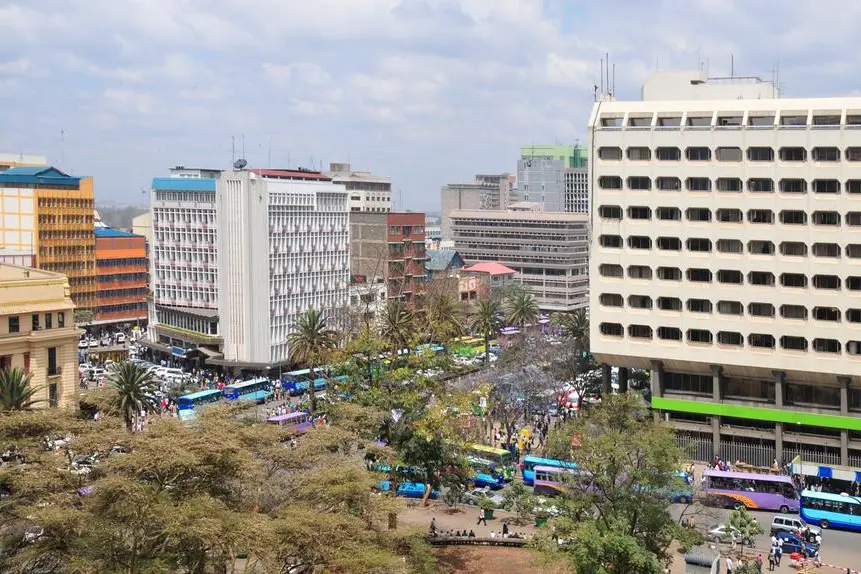PHOTO
Kenya’s stock market is facing the risk of foreign outflows as a result of the escalating regional conflicts and the potential global trade wars triggered by the US tariffs, highlighting the sensitivity of deep-pocketed foreign investors to insecurity and political noise in frontier and emerging markets.
The Capital Markets Authority (CMA) says in its latest quarterly market report (January-March) that insecurity in the Democratic Republic of Congo, South Sudan and Somalia is likely to harm the flow of investment capital to Nairobi.
The regulator reckons that the volatile situation on the Nairobi Securities Exchange (NSE) is likely to be exacerbated by the contentious tariffs imposed by the US President Donald Trump as foreign investors sell their stocks in search of secure investment environments that are unlikely to be significantly affected by the proposed policy reforms in Washington DC.“Political instability in the Democratic Republic of Congo, South Sudan and Somalia is likely to have a negative spillover effect on the Kenyan domestic market by posing insecurity threats harming the flow of investment capital into Kenya,” the regulator says.
Foreigners accounted for 38.24 percent of total market turnover in the first quarter of this year, down from 43.83 percent in the previous quarter (October-December) 2024, CMA data shows.
During Q1 2025, the Nairobi bourse recorded a net foreign outflow of Ksh3.26 billion ($25.27 million) as foreign investors sold their shares in listed companies, compared with Ksh16.63 billion ($128.91 million) in Q4 2024.“The drop is attributed to investors seeking a secure investment environment that is unlikely to be significantly affected by the proposed policy reforms in the US,” CMA explains.
The foreign participation in the equity market declined from 43.83 percent in Q4 2024 to 38.24 percent in Q1 2025.
In January this year, foreign participation remained relatively strong at 46.22 percent, but dropped sharply to 31.03 percent in March, likely due to tariff pronouncements by President Trump.
But the stock market registered a gain of 3.69 percent in the quarter, although it is a significant decline, compared with the 76.62 percent gain recorded in December 2024.
According to the CMA, Kenya might experience spillover effects from political instability in neighbouring countries, and the US-China trade war is likely to fuel uncertainty in global trade, potentially leading to a global economic slowdown.“This will potentially spark a stock market rout, dampen investor sentiments leading to a slowdown in capital markets activity,” CMA notes. “Further, with the short-term trade landscape remaining uncertain, corporations aiming to raise financing via the capital markets will pull back on their initial public offering (IPO) decisions as we head halfway into 2025.”CMA further notes that the persisting geopolitical conflicts and confrontations between Ukraine and Russia are a major concern.
In mid-March, investors pulled out of global equity funds on lingering concerns about the impact of President Trump's aggressive trade policies on the global economy.
Outflows from sector equity funds eased to a low of $178.7 million as inflows into industrials ($1.02 billion), and gold and precious metals funds ($485 million) partially offset net selling in most sectors.
Across East Africa, at least 130,000 people have been displaced in South Sudan since fighting broke out between government troops and opposition forces, including the White Army, which is said to be supporting the opposition leader, First Vice-President Riek Machar.
In Congo, fighting between Congolese security forces and militant groups led by M23 escalated in January, resulting in the capture of Goma, the regional hub of eastern DRC near the Rwanda border.
In Somalia, terror attacks and clan conflicts are increasing as a result of disputes over land, water, and political power, displacing more than 250,000 people and killing more than 600 between January 2024 and February 2025.
These conflicts are expected to persist in 2025, driven by unresolved land disputes, political rivalries, and climate-induced resource scarcity.
© Copyright 2022 Nation Media Group. All Rights Reserved. Provided by SyndiGate Media Inc. (Syndigate.info).





















